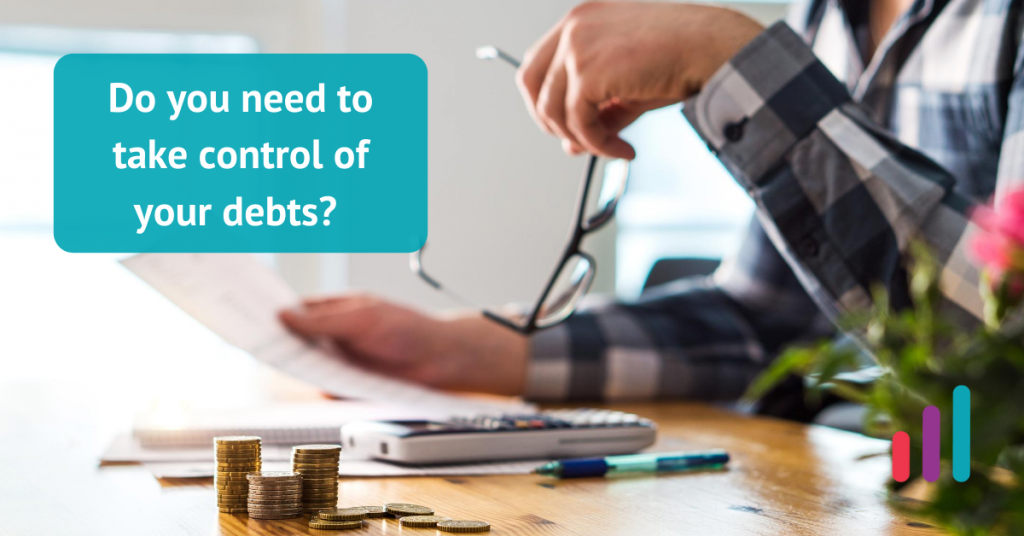The word debt can make people tremble with anxiety and being unable to control the debt is what brings most people to their tipping point. When your debts get out of hand, and you find yourself juggling multiple credit cards and loans, it can be both mentally and physically exhausting. So, for the sake of your health, having the ability to manage your debts confidently is essential.
There are actions you can take to control your debts and pay them off sooner, and Debt Consolidation is one standard option. Debt Consolidation combines all your existing debts into one new debt, which can provide you with a clearer vision of your financial situation and help you manage your repayments better.
This process typically involves taking out a new personal loan (ideally with a lower interest rate than what you’re currently paying) to repay your existing debts and then paying off the new loan over a set term. This method of Debt Consolidation makes paying back your debts easier as you don’t have to keep up with several creditors and lenders. However, Debt Consolidation through a personal loan will often be secured against an asset, such as your home. Therefore, it’s essential to consider both the pros and cons of Debt Consolidation.
Pros:
- Being able to switch over to a new product that offers a lower interest rate that is better suited to you.
- Being able to choose a new product that offers you a comfortable repayment term, so you don’t risk paying late fees and further interest.
- It can save you more money because you have less interest and/or fewer fees to pay.
- There will only be one loan repayment for you to worry about each month, which is much easier to manage than multiple loan repayments.
- Because there’s only one loan, setting up a repayment plan is easy, and you’ll have a better idea of when you’ll be debt-free.
- One, easy-to-manage debt is an excellent way to improve your credit rating.
Cons:
- Consolidating your debts mean that you’ll free up credit, but if you’re not careful, you might end up spending more and accumulating even more debts.
- A personal loan with a longer-term can help you reduce your monthly repayments; however, having a longer loan term can mean you’ll pay more interest overall.
- If you don’t keep up with the monthly repayments on your personal loan, you could end up hurting your credit score or be in severe financial hardship.
If you’re sold on the pros of Debt Consolidation, before jumping into the deep end, ask yourself the following questions. These will help you understand your current financial situation and determine your capability to handle Debt Consolidation.
- What are your current monthly repayments?
To make sure the Debt Consolidation product you’re applying for is helping you to pay less, not more, across your debts, you need to know how much you’re currently paying each month. Check all of your bank statements or bills for your credit accounts and do the calculation. - How much interest are you currently paying (and fees)?
One benefit of Debt Consolidation is to reduce your interest repayments. Check the current interest rates and fees for each of your accounts to ensure you choose a new Debt Consolidation product that has a lower interest rate. - Will you be eligible?
Your eligibility to consolidate your debts and being approved for the full amount you need is not guaranteed. Therefore, it’s best to check the minimum eligibility criteria, your credit record and the minimum and maximum allowable limits for the Debt Consolidation product you want to apply for. - What is your Credit Score?
Credit providers go through your credit record and check your credit score to assess your risk and establish your ability to repay credit. Before applying for a Debt Consolidation product, make sure you self-assess your credit record and ensure that all the information is correct and that you have a good idea of your financial position.
There are a couple of methods to choose from when it comes to Debt Consolidation. The most common one is Debt Consolidation through a personal loan, discussed above. The other methods include a balance transfer credit card and also refinancing through your mortgage. To choose the best method for you, it’s best to speak to a professional advisor.
If you require assistance with your Debt Consolidation, the team at FutureNow Finance are here to help. We can assess your current financial position and help you find the right product to consolidate your debts. Call 1300 013 730 or email hello@futurenowfinance.com.au.

